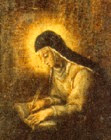
 Happy Veteran’s Day!
Happy Veteran’s Day!The book on the left, The Things They Carried, is the book my daughter’s English is reading next semester; the one on the right is – in my not so humble opinion – the book they should be reading! The former is a fictional account of our nation’s recent experiences in Vietnam; the latter is a generational saga about one family’s sense of honor and sacrifices for that honor and the country they love. The difference between the two books? The first takes the more politically correct view that American involvement in Vietnam was a nihilistic nightmare which should not have happened. And of course, the second book, Faith of My Fathers, is too (gasp) political since it happens to have been written by a United States Senator, John McCain, our defeated Republican candidate for President in the 2008 election, never mind that he is also a former Prisoner of War (POW) and a decorated Vietnam Vet.
FoMF is an incredible book.
Despite its title, Faith of My Fathers, has almost nothing to do with organized religion and everything to do with living an honorable life. The 'faith' Senator McCain is speaking about only becomes apparent on page 257 of the book and it is spelled with a small 'f', meaning 'keeping faith with one's brothers', in particular under the uniquely horrendous circumstances he faced as an American in a Vietnamese Prisoner of War camp in the 1960s.
For sentimental and/or personal reasons I was strongly inclined to give this book five stars. I was incredibly moved by Senator McCain's suffering on behalf of our country. I admire patriots, especially humble ones. In FoMF he constantly downplays his own torture and punishment, insisting he was spared what most of his comrades suffered because of his four star father.
Maybe he was and maybe he wasn't. It certainly didn't sound like he got off too easy. If you call two broken arms, a broken knee, bayoneted twice, deliberately getting your shoulder broken, starved, beaten, solitary confinement for years, tortured, interrogated, hung by your arms and broken bones going unset for months favorable treatment, well then I guess his famous father's position earned him some sort of 'special' status. I just didn't see it.
However, sympathy aside, the first half of the book is devoted to the history of Senator McCain's illustrious grandfather and father, both four star naval heroes in their own rights. And while I recommend this sort of reading to my sea-loving father and my military husband and father-in-law, it can get a bit tedious to someone with no military background. It does, however, give anyone who wants to understand John McCain an excellent background on his family, their history, values, mannerisms and relationships. Also, McCain is very upfront and honest about his own youthful misadventures and all the hard knocks he took as a result. I liked him all the more for his humor and candor.
I don't deny that I was prepared to like the book. I had seen the movie of the same name and knew what McCain suffered in Vietnam. Still I liked the book for more than just the facts of what happened; I liked it for the way it downplayed his actions and focused on his family and the men he served with. There were many little ways that the character of the author shone through his writing.
Ultimately FoMF is a story about the Code of Conduct and what it meant to a group of young men who were tested to the utmost of their human endurance. In particular, McCain highlights one young man who he says never wavered in his commitment to the Code and died for his efforts. McCain confesses his worst fear during his five year ordeal in these words:
Unless we have experienced something of the magnitude of five years of systematic, unrelenting torture we can never know what it is like, but we can at least read about it, ponder it, value it and be grateful to the heroic patriots who have suffered and died for the sake of our country, for us. For most of America’s history, schools have required students to study her – and other – heroes. Now, for some reason, our children are forced to read books which tell them that the brave young men who died for them in Vietnam died in vain. What a travesty! What a lie!'My first concern was not that I might fail God and country, although I certainly hoped I would not. I was afraid to fail my friends. I was afraid to come back from an interrogation and tell them I couldn't hold up as well as they had...Had I accepted that many of the others had surrendered their dignity voluntarily, had agreed to live with such reproachful self-knowledge, I doubt I would have resisted to the extent that I did, and thus I would probably not have recovered from the shame I felt when I was broken...Glory belongs to the act of being constant to something greater than yourself, to a cause, to your principles, to the people on whom you rely and who rely on you in turn. No misfortune, no injury, no humiliation can destroy it.' (pp. 256-257)
This Veteran’s Day I’d like to set the record straight. No American soldier who ever suffered or died in any battle anywhere for his or her country suffered or died in vain. And I for one am most sincerely and humbly grateful!
If I was still homeschooling, my daughters would be reading Faith of My Fathers, not The Things They Carried. And believe me, they know it. God willing, they will read it someday.
Check out my books on Goodreads!





